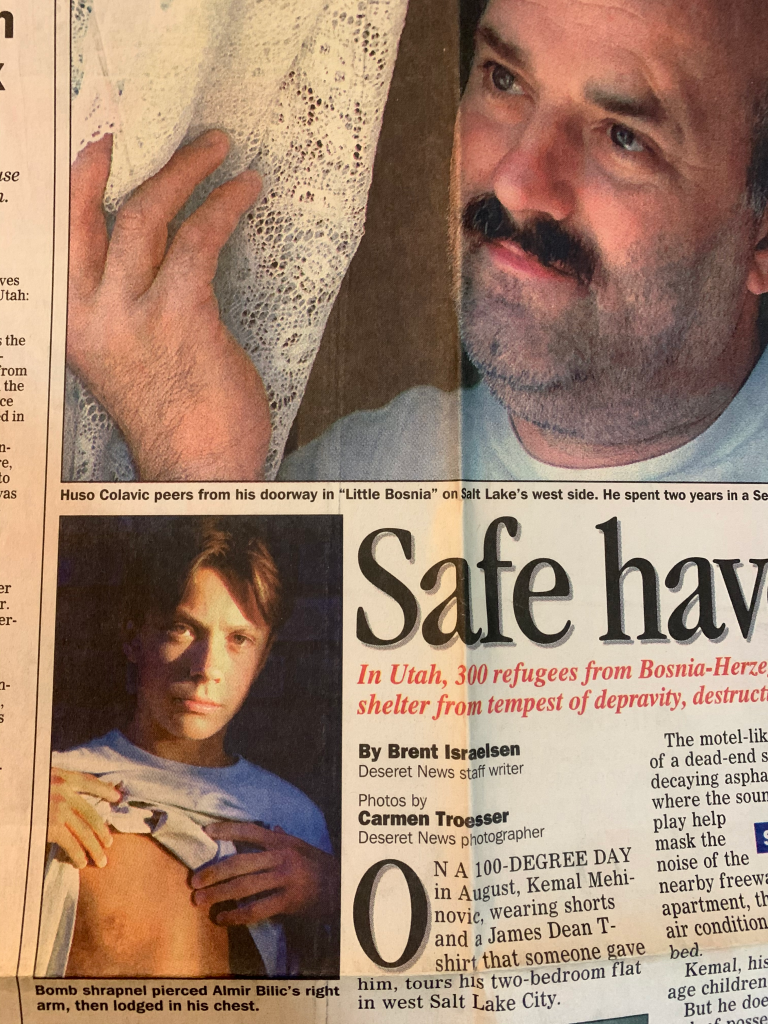I had planned to revisit Sarajevo by now to write again about Bosnia and its war, as I had done 25, 20, and 15 years ago. (See snapshots of stories below.)
The pandemic, of course, dashed that plan.
So today, on the eve of the 25th anniversary of the signing of the peace accords in Paris, I am reminiscing on the war, the peace, its victims – and whether anyone learned anything.
The Bosnian war, which lasted from 1992-95 was mind-numbingly brutal, with the worst atrocities in Europe since WWII. I learned about it in-depth through extensive interviews with refugees and their families left behind, whom I met on a half-dozen trips to the former Yugoslavia.
Almost everyone told me they were stunned that war had come again in modern times to the Balkans, especially to Bosnia-Herzegovina, which had been a model of multiculturalism and integration.
Most Americans could not understand it, either, and put it out of their mind. Who could blame them? How could anyone understand war crimes and genocide descending upon a place that just eight years earlier had hosted the world for the ’84 Winter Olympics? How could anyone understand the absurdity of Serb-Muslim, Croat-Serb, and Muslim-Croat alliances at each other’s throats at the same time?
The war did not begin overnight. It began with the rise of charismatic populist politicians, like Slobodan Milosevic in Serbia and Franjo Tudjman in Croatia, who fanned the flames of nationalism, reopened old wounds, and flooded the airwaves with propaganda and blatantly false accusations against their rival ethnic groups. Not since Nazi Germany had propaganda resulted in massive crimes against humanity. The purges of Muslim residents from Serb and Croat communities in Bosnia came to be known as “ethnic cleansing,” a phenomenon that — because it was so unchecked in Bosnia — would occur again in Kosovo a few years later.
My immersion in the Bosnian war and its aftermath left me extremely uneasy at the time. I asked myself: Could something like that happen again elsewhere in Europe? Or, God forbid, in America? I remember on more than one occasion explaining it to friends and family like this: “Imagine if militia groups from the rural parts of the state armed themselves to the teeth, took up positions in the hills around Salt Lake, and rained 1 million artillery rounds onto the city? That’s what happened in Bosnia and Sarajevo.”
We can – and should – learn a lot about what happened in Bosnia. We should pay attention to the divisions there that continue to be stoked by cynical politicians, who now employ social media and trolls to disseminate conspiracies and lies about rival ethnic-political groups.
We should learn, and we should pay attention. But will we?

My dispatch on the day the peace accords were initialed in Dayton. Bosnians were unsure the deal would last. My editor told me: “We should send you back when the truce ends.”








